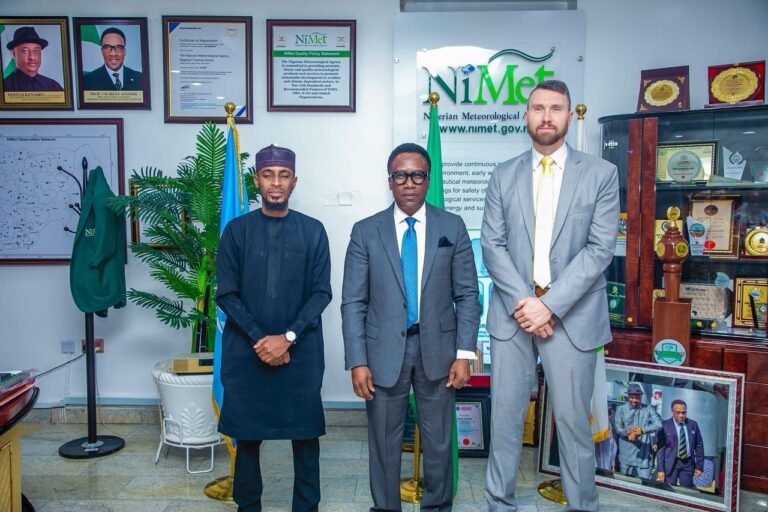The Nigerian Meteorological Agency (NiMet), and the Agro-Climatic Resilience in Semi-Arid Landscapes (ACReSAL) Project, have agreed to develop a customised Digital Precision Agricultural Extension (DPAE) platform for smallholder farmers in northern Nigeria.
The National Project Coordinator, ACReSAL, Mukhtar Tanko, at a meeting held in Abuja told the Director General of NiMet, Prof. Charles Anosike that the project recognised NiMet as an important stakeholder in the development, deployment, and sustainability of DPAE.
He highlighted that the objectives of Sub-component B2 of the project are to support farmers at the household level to optimise climate-smart rain fed agriculture practices.
“Achieving this requires utilising weather data to optimise farm management, leading to improved agricultural productivity,” Tanko noted.
He added that ACReSAL intends to develop a customised Digital Precision Agricultural Extension (DPAE) platform for smallholder farmers in northern Nigeria.
Tanko noted: “This digital agricultural extension service will provide an opportunity whereby farmers can receive both real-time information and advice on agriculture information and customised and predictive content, such as input recommendations, market information, and weather-related information.”
Responding, Anosike welcomed the idea of strengthening the partnership between the agency and ACReSAL.
He explained that the objective of the DPAE platform for smallholder farmers in northern Nigeria is to develop, pilot, and implement a precision digital agriculture extension system within the region as part of the strategy for improving farmers’ access to extension and advisory services.
Anosike said: “You can’t practice precision-smart agriculture without weather and climate information. We have an existing relationship with ACReSAL which has been productive, so we welcome this idea to strengthen our partnership.
“It is also important that NiMet is a part of co-developing the weather and climate dashboard and platform which should be interactive and easy for the farmers to access and use.”

